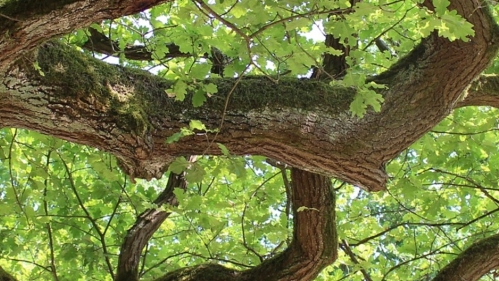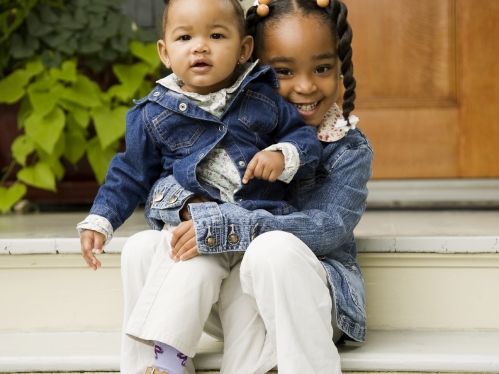
Certificate on Interpersonal Violence and Trauma (C-IVT)
Through its Center for Research on Ending Violence (REV), Rutgers School of Social Work offers a Certificate on Interpersonal Violence and Trauma (C-IVT), formerly the Violence Against Women and Children Certificate (VAWC) Program, for Master of Social Work (MSW) students. The certificate program offers students the opportunity to develop knowledge, values and skills in the area of interpersonal violence and trauma, gain a transformative understanding of trauma and its impact, violence prevention and trauma informed culturally responsive approaches. The certificate prepares students for a career in direct clinical services, management and policy, and research. The program also provides competitive scholarships to students who have demonstrated sound academic standards, skill sets and distinct interest in the field of interpersonal violence and trauma. Students accepted for the certificate program will receive notation of completion of the certificate program on their transcripts, as well as a physical certificate.
- Program General Overview
- Program Description
- Top 10 Reasons to Join C-IVT Certificate Program
- Verizon Wireless HopeLine Scholarships
Fully online MSW students will receive information from the online program.
Not a current MSW student but interested in further education on issues of violence against women and children? Learn more about our Continuing Education Certificates in Violence Against Women.
Winter 2025 Study Abroad Program: Social Welfare, Healthcare Delivery, and Community Engagement in Sonagachi, Kolkata, West Bengal, India. C-IVT students can apply now to participate in the January 2025 Study Abroad Program, which may count as a C-IVT elective. Click here for more information and to apply. Applications are due October 1, 2024.
All advanced MSW graduate students can apply. Accepted students enroll in focused coursework within the MSW curriculum and are placed for a practicum in an agency of the student's choice that specializes in interpersonal violence and trauma, either in direct practice, management and policy or research roles.
Students may apply to the C-IVT certificate program while in their first year of the MSW program (regardless of part-time or full-time status). Students in the certificate must fulfill the following academic requirements:
- Advanced Contemporary Policy: Interpersonal Violence
- Understanding Violence & Abuse in Adulthood OR and Understanding Violence & Abuse in Childhood
- Two electives approved as C-IVT approved electives
- Required practicum hours in a C-IVT approved agency
- Attend one Inter-professional Seminar


Application
The application for students in the Traditional (on campus) MSW program or Blended MSW program for the 2025-2026 cohort will open in September.
Incoming Advanced Standing students can apply February 15 - April 15.
If you have any questions or would like additional information, please email Rupa Khetarpal, Director of the Certificate Program, at rkhetarpal@ssw.rutgers.edu or revcenter@ssw.rutgers.edu.
Application Periods
First Year (Full-time)/ Second Year (Part-time & Blended) MSW students: September 25 to November 26
*Part Time MSW students: Must apply the fall before their advanced practicum learning placement year
Advanced Standing Students: February 15 - April 15
Fully Online Students: Application periods will vary for online students. Students will receive information separately from the director of that program.
Orientation
Prior to the fall semester, there will be a mandatory orientation for all new C-IVT certificate students. Dates will be sent out well in advance of the event, but it is expected that all accepted students will attend. We offer virtual orientations for students from all campuses.
Advanced Year Practicum
- Must be at a C-IVT related placement that focuses on key areas related to interpersonal violence, including prevention, direct practice, non-profit management, and policy.
- Placement will be arranged in conjunction with the practicum office and the C-IVT Program.
A note about C-IVT Practicum
Students accepted into the C-IVT Certificate Program will receive one-on-one guidance in identifying an appropriate practicum placement that is related to interpersonal violence and trauma, including in the areas of domestic and sexual violence, child abuse and neglect, and human trafficking, in a variety of settings including hospitals, school settings, community mental health agencies, domestic violence and sexual violence service providers, and public offices. We make every effort to consider the student's choice of agency, topic and population that aligns with their current program goals and future career choices, prior to finalizing the placements.
Through the Center for Research on Ending Violence (REV), the Rutgers School of Social Work is pleased to offer three Verizon Wireless HopeLine Scholarships annually. These scholarships aim to prepare social work professionals to work in the area of interpersonal violence and trauma nationwide. Students committed to working on these issues are eligible to apply for this $2,000 scholarship to support their graduate work. Individuals selected to receive the scholarships are also provided with the opportunity to work at the Center for Research on Ending Violence as a research assistant.
Requirements
Students selected as C-IVT Verizon Wireless HopeLine Scholars must complete the coursework and practicum requirements of the Certificate Program, as well as present an area of research at the C-IVT End of Year Colloquium. Please see below for previous Colloquium presentations:
Colloquium
Our Verizon Wireless HopeLine Scholars present a paper at an end of the year colloquium. Please see below for colloquium presentations.


Accordion Content
-
- Violence, Incarceration, and Addiction: A Student's Perspective on Working with Survivors, Jayna Marie Jones
- Sexual Violence: Lessons Learned and Proposal for Prevention, Jennifer Kurdyla
- Femicide in El Salvador, Abril Lazaro
-
- The Impact of Interpersonal Violence and Trauma, Nicole Chaladoff
- Human Trafficking: Invisibility of Women in Labor Trafficking, Janey Chung
- Misconceptions in Human Trafficking, Laura Negin
-
- Vicarious Trauma: The Results of Working with Sexual Assault Survivors, Laura Matias
- Adverse Childhood Experiences Study, Catherine Fries
- Challenges when working with LGBT Survivors of IPV, Brittany Harrison
-
- Sexual Assault in the Military, Jessica Broadnax
- Human Trafficking: Modern Day Slavery, Kerry Krautwald
- Animal Assisted Therapy for Trauma Survivors, Brady Root
- Reducing and Preventing Violence Against Women: Implementing Education About Sexual Assault to Adolescents, Jalisa Smith
-
- Trauma Treatment: The Importance of Body Centered Therapy, Bridget Coyle
- Rothmel - Culture of Victim Blaming, Temima Rothmel
-
- Working with Survivors of Child Incestuous Abuse, Jessica Trusiani
- Violence Against LGBTQ Youth, Marlene Anderson
- Megan's Law and the Juvenile Justice System: Implications for Social Work Practice, Laura Johnson
- Marital Rape Law Evolution: The Redefining of a Social Problem, Ryan Smith
-
- Effects of Domestic Violence on Children, Janina Tauro
- Domestic Violence in the United States Military, Jennifer Martinez
- Battered Latina Immigrants: Barriers and Interventions, Alberto Olarte
- Building Bridges of Hope: Spirituality, Religion and Intimate Violence, Tamara R. Davis
-
- Intersectionality: The Multiple Jeopardy of Interpersonal Violence, Kim Lopez
- The Outsider Looking In: Ethical Dilemmas in Understanding Oppression of Women within International Cross-Cultural Contexts, Vithya Murugan
- Domestic Teen Sex Trafficking, Virginia Tenias De-Lopez
Student Spotlights
Kennedy Walton
Graduated May 2020 | Practicum Learning Placement: Visions and Pathways
Areas of Interest: Domestic violence and childhood trauma
What made you want to get involved in the field of gender-based and/or interpersonal violence and/or trauma?
My interest in this field initially stemmed from personal experiences that later turned into a passion to educate myself to become an advocate for others with similar personal experiences.
What are some of the things you're currently working on (scholarly, volunteer, and/or professional) within the field that you are proud of?
I have the honor of being one of the 2019-2020 Verizon Wireless Hopeline Violence Against Women and Children scholarship recipients. Presently, I am doing my practicum learning placement at a residential facility that provides counseling services to adolescents ages 13-21. The population that we serve has faced various levels of trauma, abandonment, and violence. In my current course load, I am taking a class that focuses on LGBTQ history and best practices for social workers to provide LGBTQ affirming services. I am sure that this course will also allow me to better provide services to an additional underserved population.
How can the Certificate Program help in attaining your future goals?
Based on the courses the certificate program requires it has allowed me the opportunity to gain more knowledge on approaches for dealing with violence against women and children as well as the major historical impacts on the policies that will likely be impacting my clients.
What would be your ideal job after graduating with your MSW?
My passion is to help eliminate stigmas in communities of color around the concept of mental health and violence. My ideal job upon graduation would allow me to provide counseling services to adolescents of color that have experienced any sexual or childhood trauma.
Sarah Fraser
Graduated December 2020 | Practicum Learning Placement: My Sister’s Place
Areas of Interest: LGBTQIA+ youth and adolescents, sexual assault and abuse, child abuse
What made you want to get involved in the field of gender-based and/or interpersonal violence and/or trauma?
As a woman, feminist, and member of the LGBTQIA+ community, gender-based and interpersonal violence and trauma are issues that are close to my heart and to the work that I do. Interpersonal violence against women is not often talked about and many of the survivors struggle with guilt and shame from the residual trauma and victim-blaming that can occur. Internalized misogyny, homophobia, transphobia, and so on can create difficult webs for youths to extract themselves from. By working with youth to empower them, helping them feel confident advocating for themselves and others, and standing by them as an ally, I hope we can create a future where we are all respected equally.
What are some of the things you're currently working on (scholarly, volunteer, and/or professional) within the field that you are proud of?
I currently work for the Homeless Children's Playtime Project in Washington, D.C., a non-profit that offers trauma-informed play spaces for children who are experiencing homelessness in order to give them access to play, which can help them gain resilience and hope for the future. We are working to expand to all of the shelters in the district and to make it mandatory for family shelters to provide children's programming and distinct resources that will advocate and provide for children's unique needs when they are experiencing homelessness.
How can the Certificate Program help in attaining your future goals?
The certificate program gives me a chance to focus in on this field and work more intimately with survivors and their families. Working with youth who have experienced domestic or interpersonal violence requires a specific knowledge base that I believe I can best gain through the certificate program.
What would be your ideal job after graduating with your MSW?
After graduation, I hope to work with underprivileged youth and LGBTQIA+ youth. One of the main goals that I wish to accomplish is to increase the number of safe community spaces for youth and the resources that are available to them. Through art and play therapy, as well as other comprehensive services, I would hope to create an environment where youth feel safe and secure and can begin to advocate for themselves.
Contact Us
Rupa Khetarpal – Associate Professor of Teaching & Director, Certificate on Interpersonal Violence and Trauma (C-IVT)
Email: rkhetarpal@ssw.rutgers.edu
Phone: 848-932-4396
